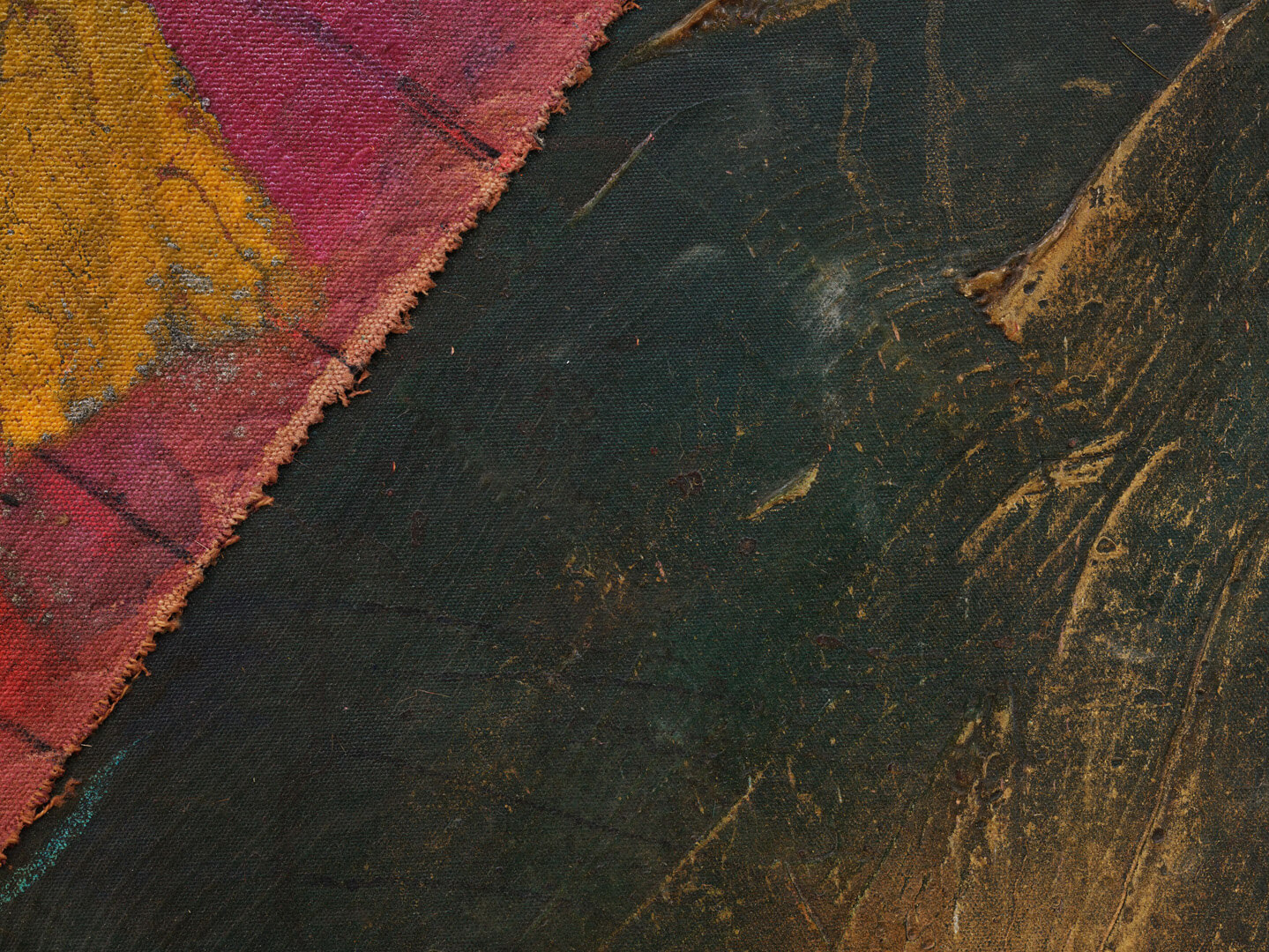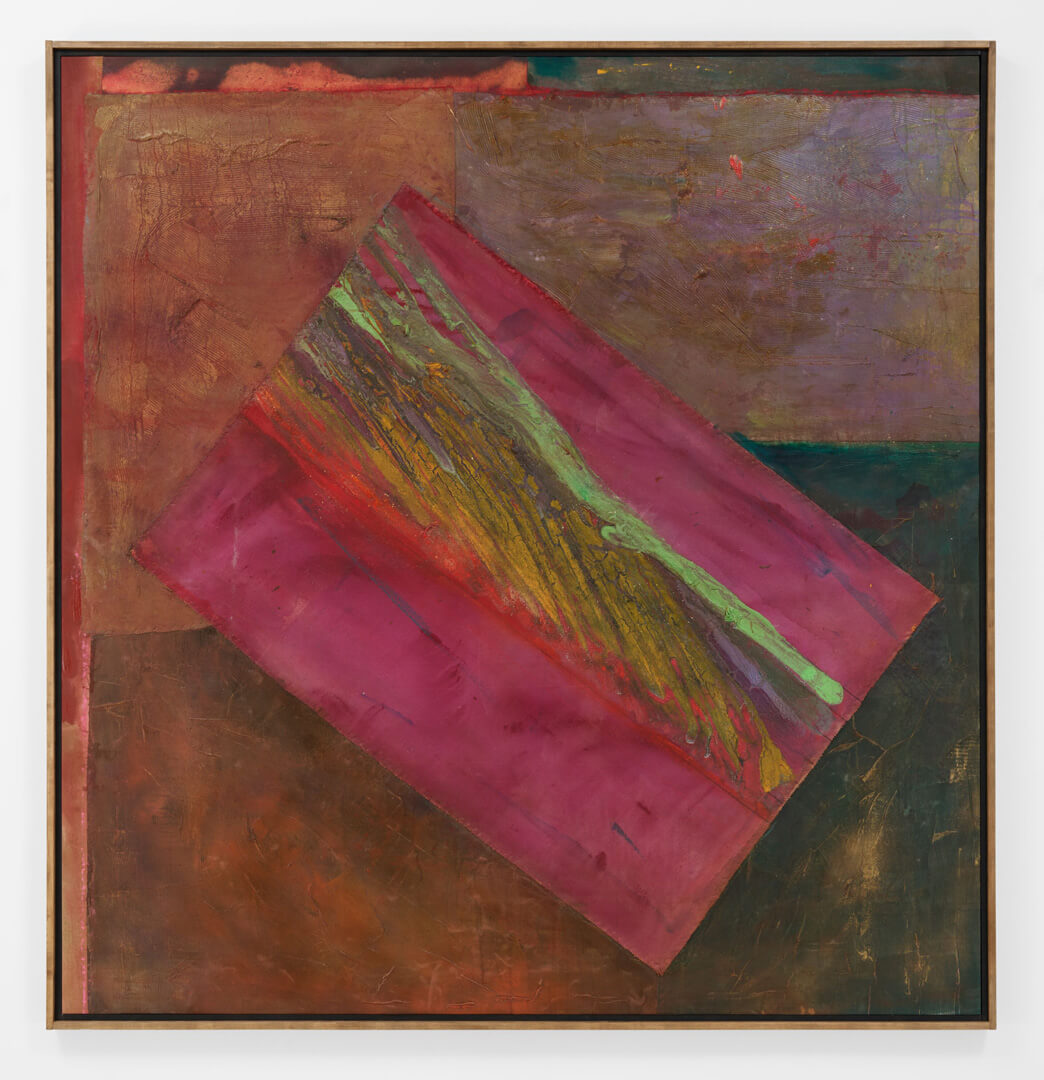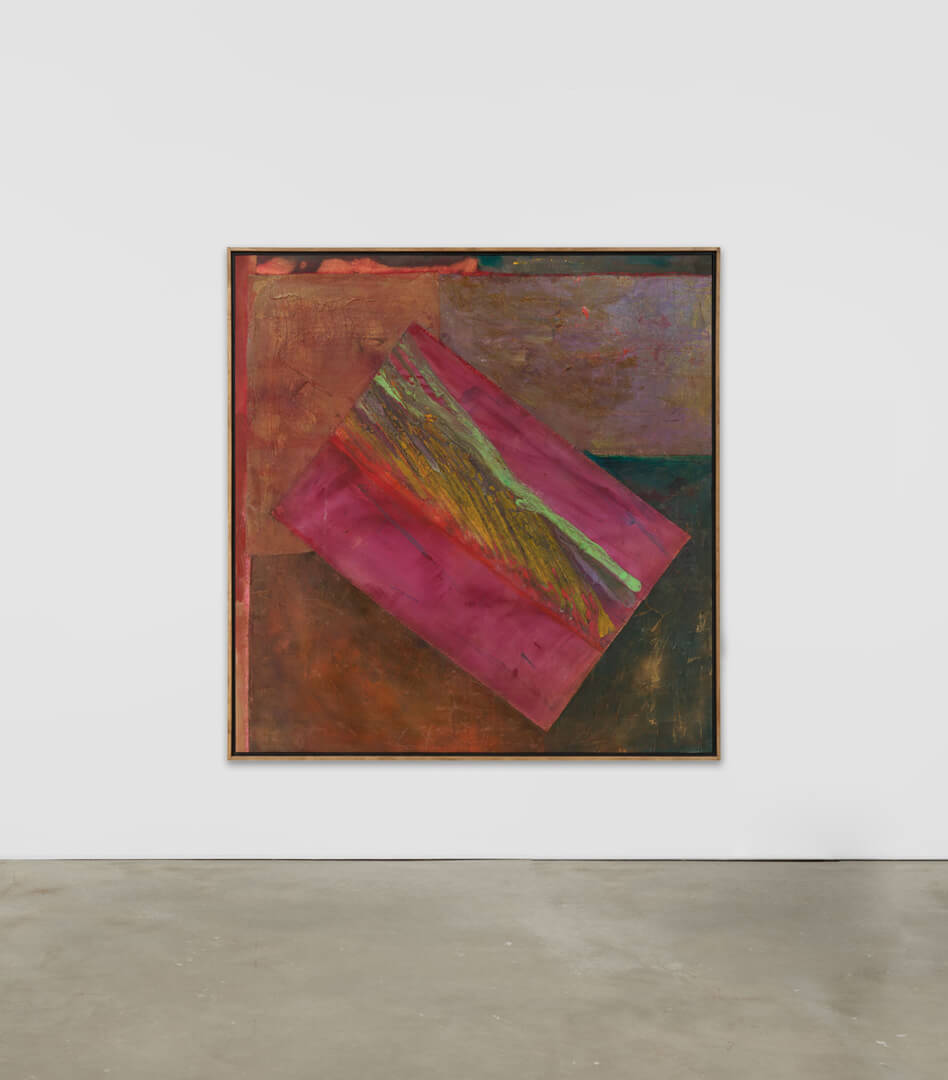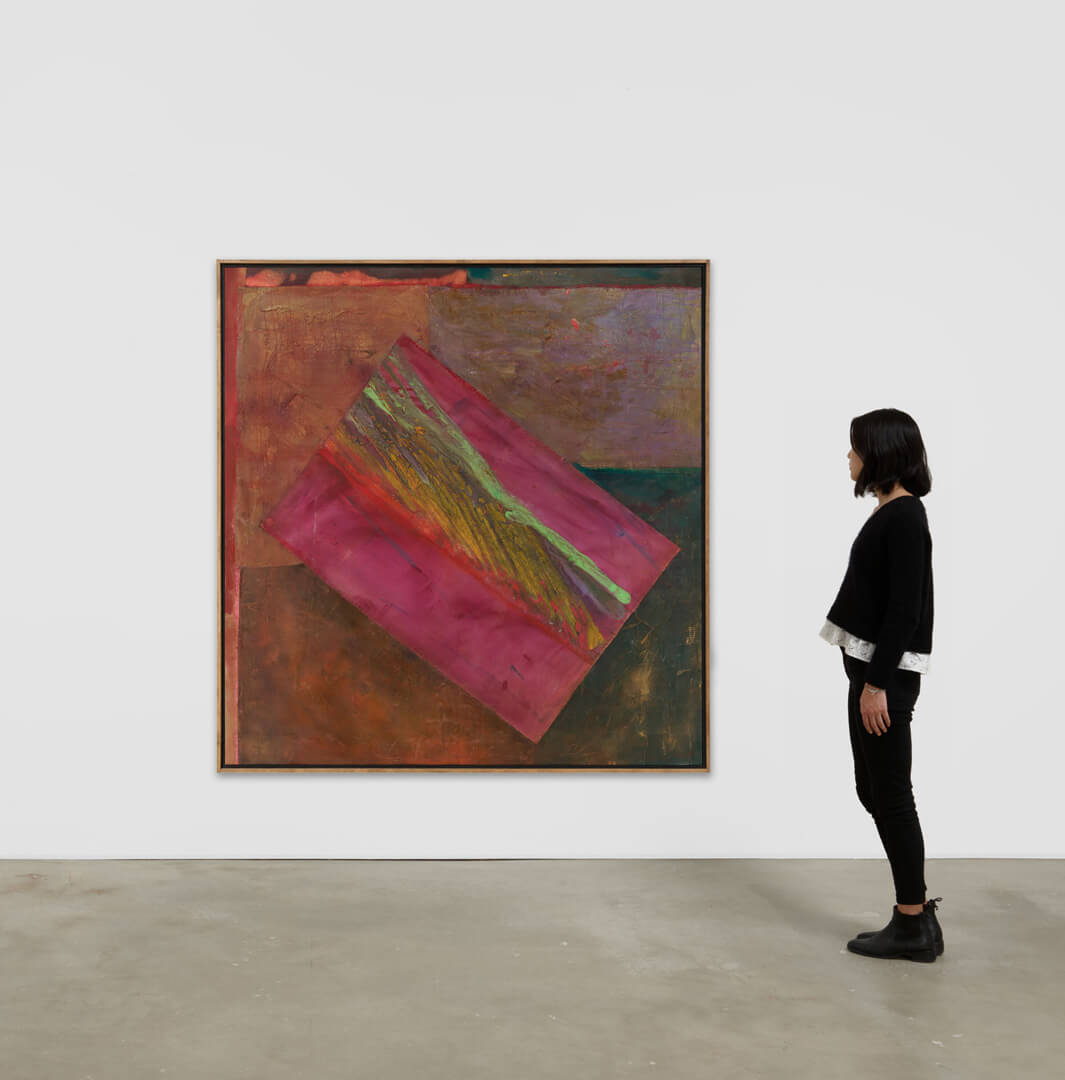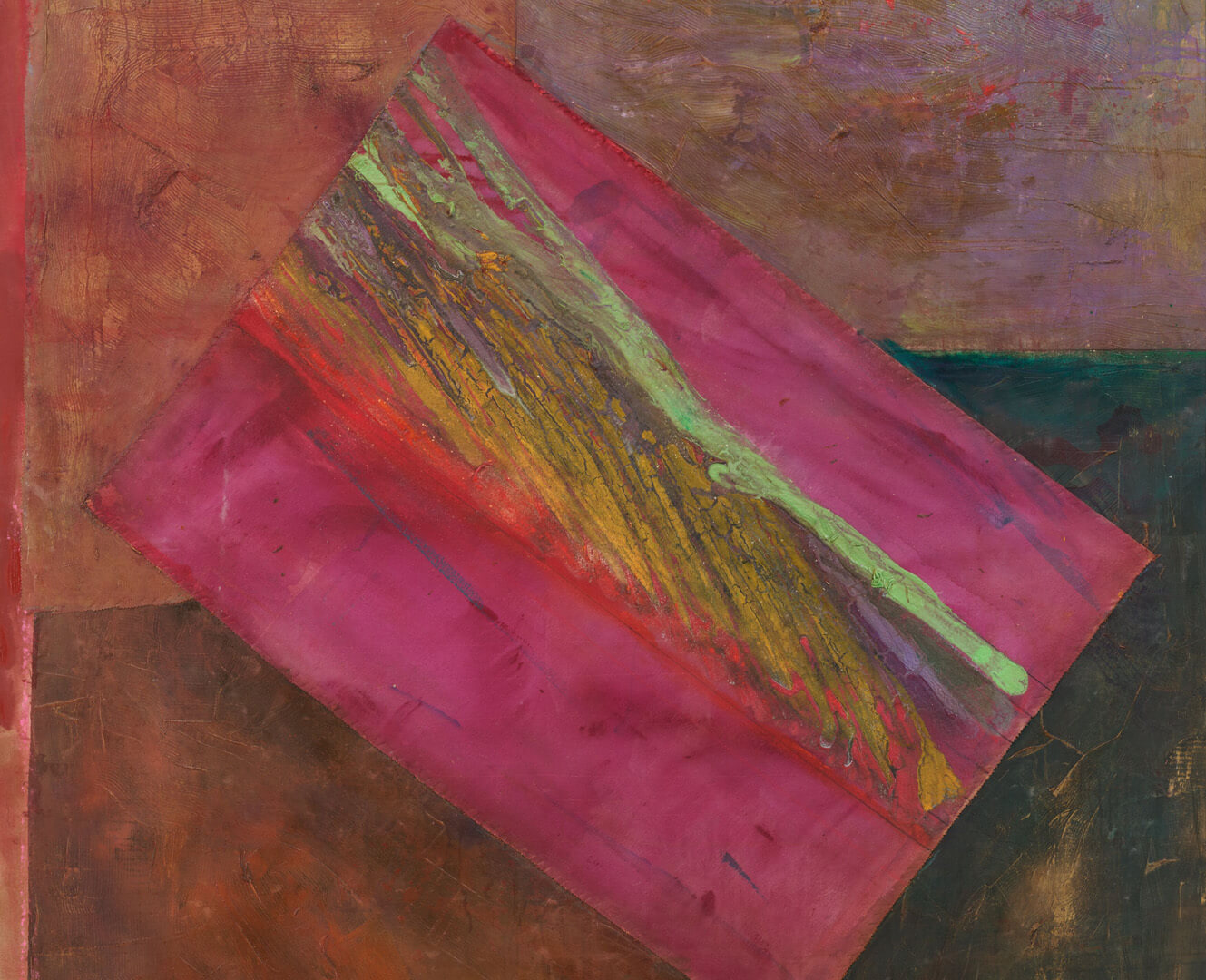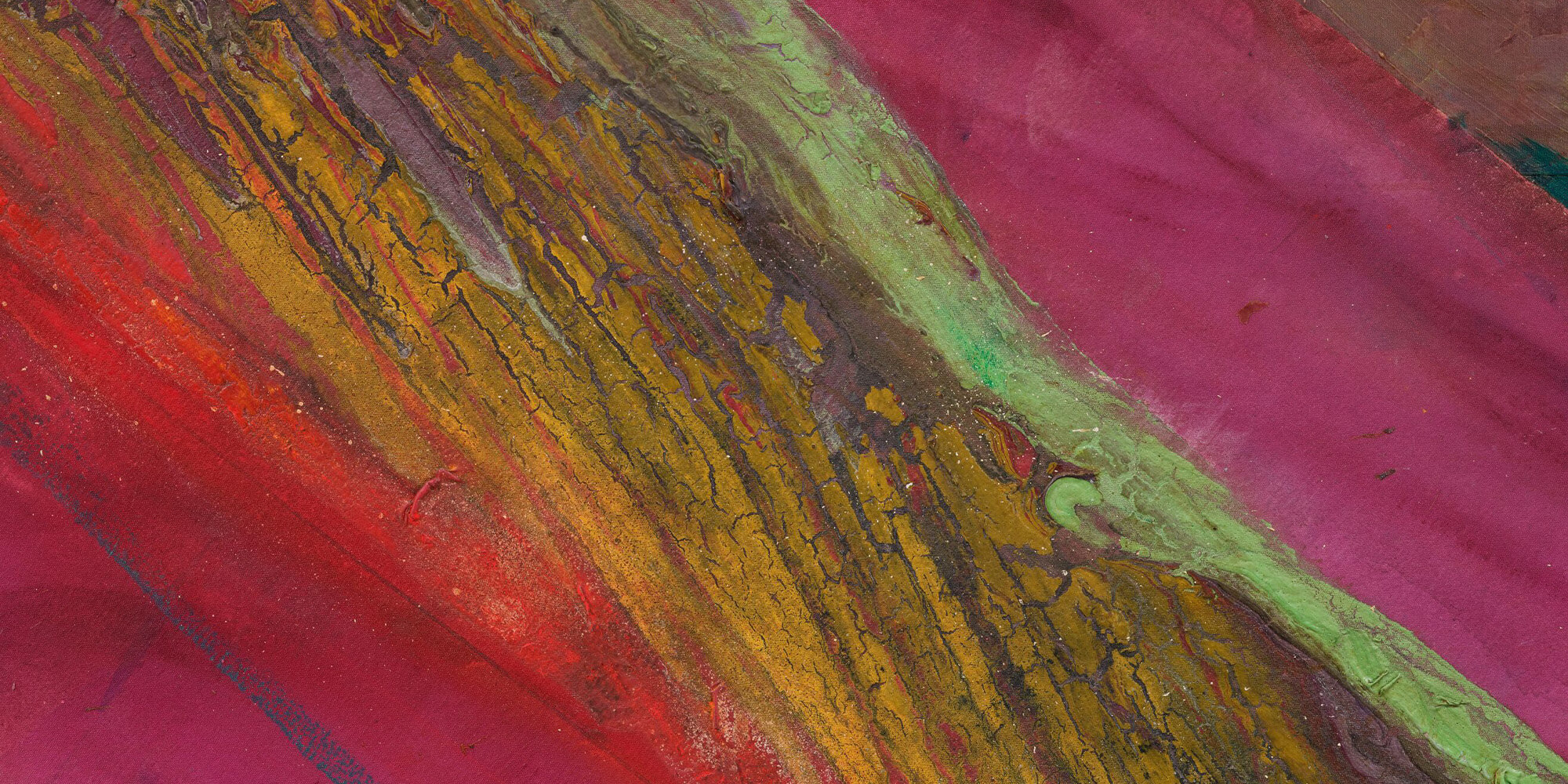
Frank Bowling
Wadi √ Two
Wadi √ Two
2011 Acrylic on canvas 188 x 180.5 cm / 74 x 71 1/8 in
‘My art is Formalist and my experience that of a black artist.’—Frank Bowling
Reverberating with shimmering, vibrant colors that complement the heavily textured composition and foreground its materiality, ‘Wadi √ Two’ (2011) encapsulates Frank Bowling’s ingenious oeuvre. A late work, the almost perfectly square, collaged canvas embodies the ‘core duality’ at the heart of the artist’s practice. As John Bunker has argued, Bowling’s innovative paintings might best be understood as colliding ‘two opposing ideas about Modernism’; a type of formalism rooted in the artist’s extensive study of geometry, color, and paint, and a second understanding of Modernism focused on improvisation and the ephemeral exemplified by collage.
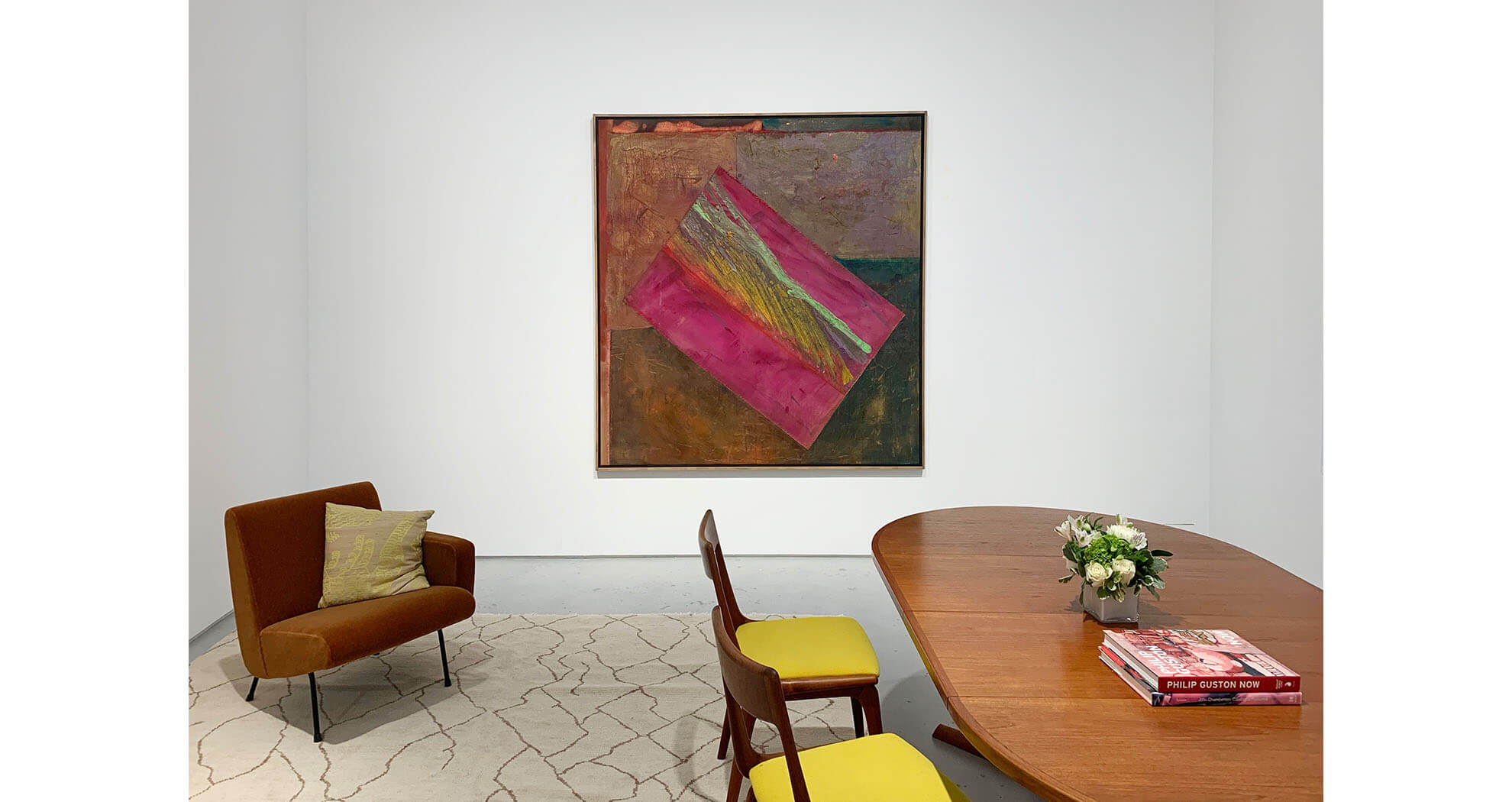
For Elena Crippa, Bowling’s titles ‘act as riddles’, and are part of the artist’s strategy ‘of resisting being defined and confined by language, of standing off against forms of control and oppression. His, after all, is a poetic language which, by definition, use and combines words in order to maintain the overall meanings as multiple and fluid’. 1 A richly sumptuous and powerfully assertive work, ‘Wadi √ Two’ exemplifies Bowling’s extraordinary career and innovations and highlights why he is celebrated as one of the preeminent postwar painters working today.Photo: Wesley Magyar
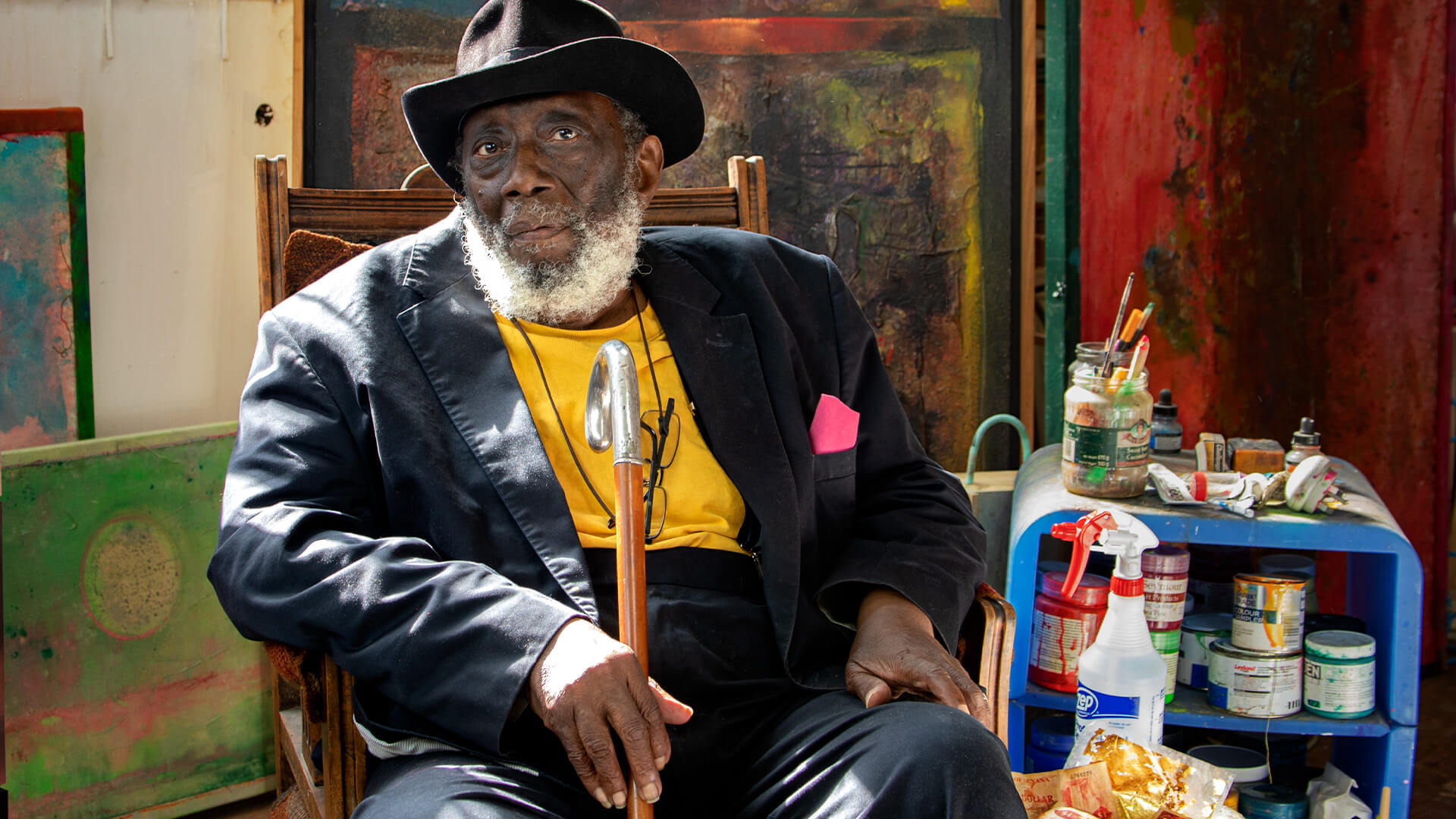
Frank Bowling
Over the course of six decades, Frank Bowling has relentlessly pursued a practice which boldly expands the possibilities and properties of paint. Ambitious in scale and scope, his dynamic engagement with the materiality of his chosen medium, and its evolution in the broad sweep of art history, has resulted in paintings of unparalleled originality and power. Bowling has been hailed as one of the foremost British artists of his generation. Born in Guyana in 1934, he arrived in London in 1953, graduating from the Royal College of Art with the silver medal for painting in 1962. By the early 1960s, he was recognized as an assured force in London’s art scene.
[1] Elena Crippa, ‘Frank Bowling’, London/UK: Tate Publishing, 2019, p. 17.
